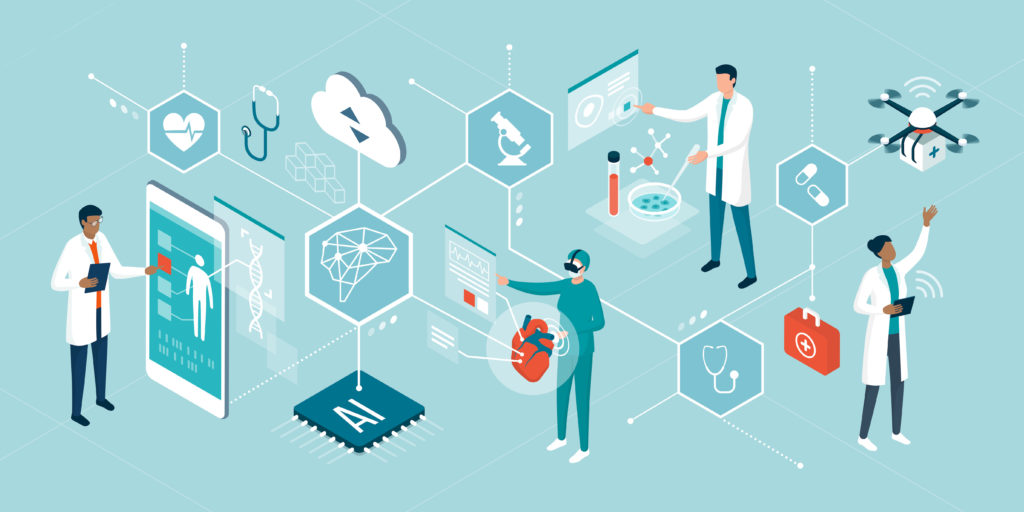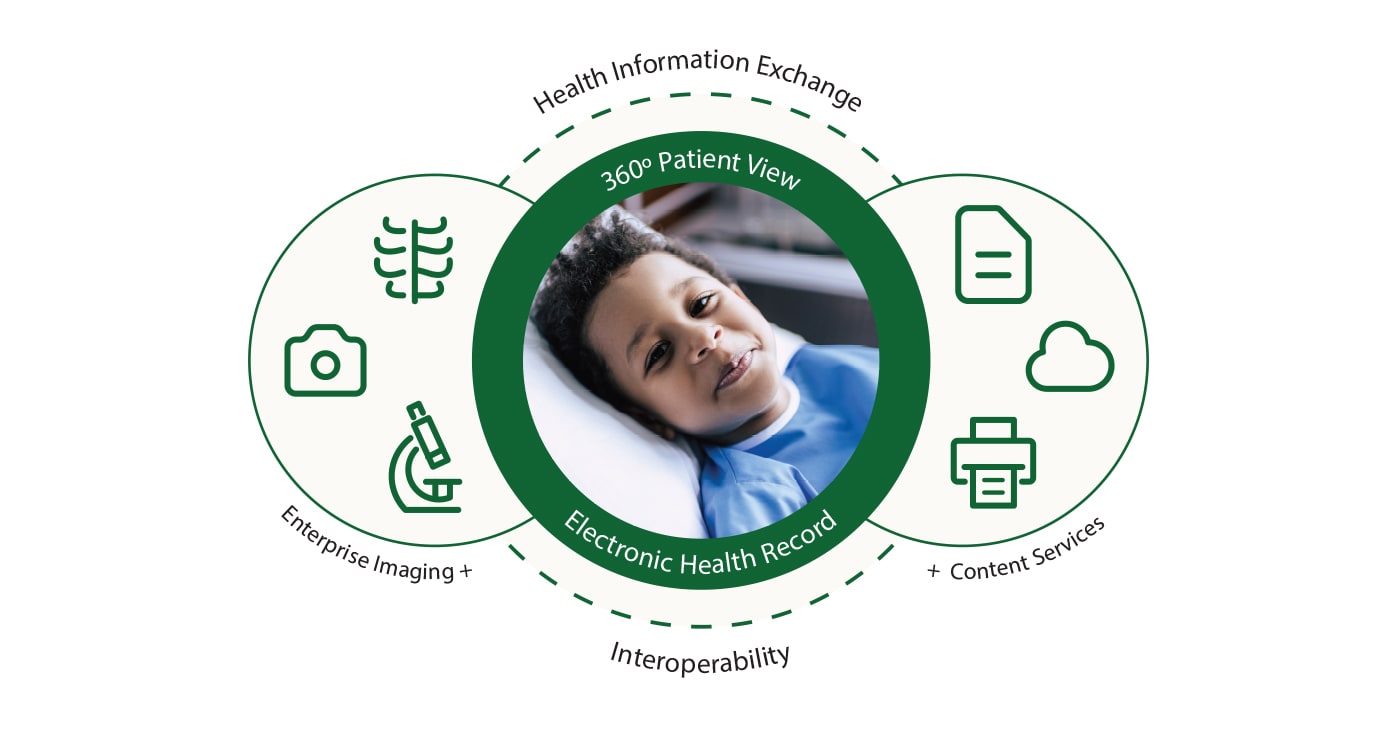Healthcare RCM: Maximize Revenue Cycle Monitoring for Better Results
Healthcare RCM: Maximize Revenue Cycle Monitoring for Better Results
Blog Article
Introducing the Conveniences of Healthcare RCM in Improving Effectiveness and Accuracy in Earnings Cycle Management
In the swiftly advancing medical care landscape, the relevance of Income Cycle Monitoring (RCM) can not be overemphasized (Healthcare RCM). As doctor aim for precision and performance, RCM arises as a crucial device in streamlining procedures, lessening errors, and enhancing economic results. By integrating with Electronic Health Records and leveraging innovative innovations, RCM not only maximizes management tasks but additionally improves the insurance claims processing experience. This transformation holds the potential to redefine monetary performance and person depend on. Yet, what are the particular mechanisms driving these improvements, and just how can they be taken advantage of to their full possibility?
Streamlining Administrative Jobs

In enhancement, the integration of electronic health and wellness documents (EHR) with RCM systems promotes real-time data access and sharing, enabling health care specialists to make enlightened choices quickly. This interconnectedness not just boosts communication in between clinical and administrative teams however likewise improves person complete satisfaction by decreasing waiting times and invoicing disparities - Healthcare RCM. In addition, structured management procedures enable far better conformity with governing criteria, mitigating threats connected with audits and charges
Eventually, the focus on refining administrative tasks in RCM results in cost savings and improved economic efficiency. By spending in automation and enhancing process, healthcare organizations can attain a more lasting earnings cycle, ensuring lasting feasibility and the capability to adjust to advancing sector needs.
Enhancing Insurance Claims Handling
Exactly how can medical care organizations improve the performance of their claims handling? By taking advantage of automation and sophisticated analytics, RCM systems improve the complicated and often troublesome claims refining jobs.
Additionally, real-time analytics play an essential function in boosting insurance claims processing efficiency. These analytics devices provide understandings right into traffic jams and potential denials, enabling doctor to address issues proactively. Predictive analytics can anticipate patterns in case rejections, enabling preemptive steps to minimize them, thus decreasing the moment considered claims to be processed and authorized.
In addition, the fostering of electronic wellness records (EHR) incorporated with RCM systems makes certain smooth information circulation, lowering redundancies and increasing the precision of details sent in cases. A constant responses loophole promoted by RCM systems better improves the process, fostering constant enhancement.
Ultimately, by leveraging technology-driven services in claims processing, medical care companies can boost functional performance, boost capital, and offer a smoother experience for patients and team alike.
Lowering Economic Errors
Accurate economic monitoring is important in health care, where decreasing financial mistakes can dramatically affect operational success. Economic mistakes, whether due to wrong invoicing, coding mistakes, or mismanagement of patient accounts, can bring about considerable revenue loss and stretched connections with patients and payers. Resolving these errors is vital to maintain a medical care company's financial wellness and enhance its online reputation.
Health Care Revenue Cycle Monitoring (RCM) plays a critical duty in reducing such mistakes with structured procedures. By carrying out standardized treatments for invoicing, coding, and collections, medical care carriers can make sure that financial purchases are handled with accuracy. Comprehensive training for staff on existing coding policies and billing techniques likewise decreases the likelihood of mistakes, making sure insurance claims are correctly refined and reimbursed.

Additionally, extensive audits and normal monetary testimonials within the RCM structure allow for the very early discovery and adjustment of disparities. Guaranteeing precision in patient information entry and confirmation even more minimizes errors, as this is usually a main resource of mistakes. By concentrating on these tactical locations, healthcare companies can reduce financial mistakes, therefore safeguarding their income streams and boosting general functional effectiveness.
Leveraging Advanced Technologies
In today's quickly developing healthcare landscape, leveraging innovative modern technologies is vital for enhancing Revenue Cycle Administration (RCM) processes. By incorporating sophisticated services such as expert system (AI), equipment understanding (ML), and robot procedure automation (RPA), doctor can substantially improve the effectiveness and accuracy of their RCM procedures. These modern technologies help in improving repetitive jobs, lowering hands-on errors, and enabling much faster handling of claims.

Moreover, the integration of blockchain technology enhances data safety and openness within RCM (Healthcare RCM). It makes sure that delicate info is secured while keeping an unalterable document of deals. This is vital for constructing depend on with people and stakeholders
Boosting Financial Efficiency
Building on the effectiveness acquired through advanced modern technologies, medical care providers can considerably enhance their monetary performance by refining their Earnings Cycle Monitoring (RCM) methods. By optimizing billing procedures, reducing claim rejections, and improving capital, medical care organizations can achieve far better monetary stability. Applying durable RCM services permits suppliers to enhance administrative jobs, decreasing the moment and sources spent on hand-operated data access and insurance claim processing. This performance causes dig this faster declare compensations and entries, making best use of income collection.
Furthermore, data analytics within RCM systems provide useful insights right into functional bottlenecks and monetary patterns. By leveraging these insights, health care carriers can make informed decisions to enhance economic outcomes, such as changing invoicing methods or renegotiating payer agreements. Boosted accuracy in coding and documentation additionally lowers case rejections and audits, promoting a smooth profits cycle.
In addition, patient interaction devices incorporated within RCM systems enhance client contentment by providing transparent invoicing info and adaptable settlement alternatives. This transparency not only enhances patient-provider connections however additionally urges prompt payments, reducing outstanding accounts receivables.
Conclusion
Healthcare Profits Cycle Management dramatically enhances efficiency and accuracy by simplifying administrative tasks and enhancing claims processing. Via the decrease of financial mistakes and the assimilation of sophisticated technologies such as AI and predictive analytics, RCM promotes compliance with billing codes and gives useful insights right into monetary trends. This organized technique not only decreases prospective claim rejections however also enhances monetary efficiency, consequently fostering trust fund and openness with clients and stakeholders within the medical care system.
As health care companies strive for accuracy and efficiency, RCM arises as a critical tool in enhancing operations, decreasing mistakes, and enhancing economic results.Streamlining management tasks in medical care profits cycle management (RCM) supplies considerable benefits by improving operational performance informative post and decreasing the worry on staff.Medical Care Revenue Cycle Administration (RCM) plays a crucial role in lessening such errors with structured procedures.In today's rapidly progressing healthcare landscape, leveraging sophisticated modern technologies is vital for maximizing Income Cycle Administration (RCM) procedures.Structure on the effectiveness obtained through sophisticated technologies, health care providers can significantly improve their economic performance by fine-tuning their Profits Cycle Monitoring (RCM) approaches.
Report this page